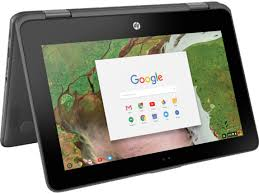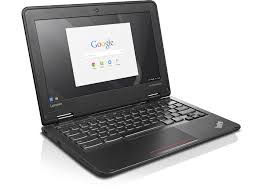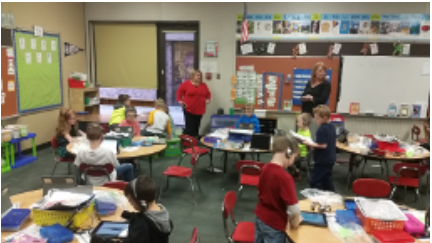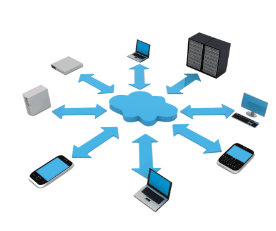Digital Initiatives
Past
In May of 2014, Rush County Schools began implementing our new digital learning initiative. We began with a full day of technology professional development for the staff from a variety of sources. This day of eLearning was hailed as a great success and very informative for everyone involved.
Afterwards, we kept staff informed of the 2014 Summer of eLearning conferences being held at various schools across the state. Many of our staff attended those conferences and gained valuable information from them.
We decided it was time to begin, starting in kindergarten and working upwards. Over the course of the next 4 years, we rolled in phases grades PK-2, 3-6, 7-8, and 9-12 of 1:1 devices.
Originally, we had used ipads for grades K-2. However, we discovered over time that chromebooks may be best suited for even the early elementary grades, so in 2018, we are switching PK-2 to chromebooks.
 Teachers are encouraged to attend Summer of eLearning and local professional development opportunities during the summer and periodic professional development and coaching during the course of the school year. Every teacher also gets a chromebook to use.
Teachers are encouraged to attend Summer of eLearning and local professional development opportunities during the summer and periodic professional development and coaching during the course of the school year. Every teacher also gets a chromebook to use.
Chromebooks are now an integral part of the Rush County Schools repertoire of tools available for teaching and learning. Work continues to sustain and grow the initiative in order to maximize benefits and to provide a diverse set of tools to provide a balanced and blended tech and non-tech oriented learning environment.








 Rush County Schools (RCS) has invested heavily in its infrastructure to prepare for upcoming initiatives. A new high availability firewall has been installed to support increasing connectivity to the Internet. Ten gigabit core equipment has been installed to provide high availability at the core and to support increasing storage and network traffic. All schools are connected via fiber optics to provide fast connectivity between buildings. The fiber optic network consists of leased fiber to outlying county buildings that provides a gigabit of shared connectivity, and school-owned fiber where possible to provide 1-2 gigabits of dedicated connectivity. All schools are equipped with 100% wireless coverage to prepare for increasing use of mobile devices. All servers utilize virtualization technology to maximize utilization and minimize hardware footprint. Virtual Desktop Infrastructure will be used in 2018 to provide enhanced mobility and chromebook support for Project Lead The Way.
Rush County Schools (RCS) has invested heavily in its infrastructure to prepare for upcoming initiatives. A new high availability firewall has been installed to support increasing connectivity to the Internet. Ten gigabit core equipment has been installed to provide high availability at the core and to support increasing storage and network traffic. All schools are connected via fiber optics to provide fast connectivity between buildings. The fiber optic network consists of leased fiber to outlying county buildings that provides a gigabit of shared connectivity, and school-owned fiber where possible to provide 1-2 gigabits of dedicated connectivity. All schools are equipped with 100% wireless coverage to prepare for increasing use of mobile devices. All servers utilize virtualization technology to maximize utilization and minimize hardware footprint. Virtual Desktop Infrastructure will be used in 2018 to provide enhanced mobility and chromebook support for Project Lead The Way. nologies are used to support teaching and learning. Interactive whiteboards throughout the district provide digital interactivity with content displayed on the computers to engage students and help teachers be more productive. Document cameras provide a powerful replacement for traditional overhead projectors that allow teachers to display content and objects in full color and capture content in digital form with ease. Mobile devices provide support for various assessment platforms, access to educational apps, assistance for students with special needs, and greater mobility in a classroom setting. Increased availability of computers (both mobile and fixed) support summative and formative online assessments at all levels. Upgrades are regularly performed on hardware and software to ensure compatibility and meet or exceed minimum system requirements for online assessments.
nologies are used to support teaching and learning. Interactive whiteboards throughout the district provide digital interactivity with content displayed on the computers to engage students and help teachers be more productive. Document cameras provide a powerful replacement for traditional overhead projectors that allow teachers to display content and objects in full color and capture content in digital form with ease. Mobile devices provide support for various assessment platforms, access to educational apps, assistance for students with special needs, and greater mobility in a classroom setting. Increased availability of computers (both mobile and fixed) support summative and formative online assessments at all levels. Upgrades are regularly performed on hardware and software to ensure compatibility and meet or exceed minimum system requirements for online assessments.